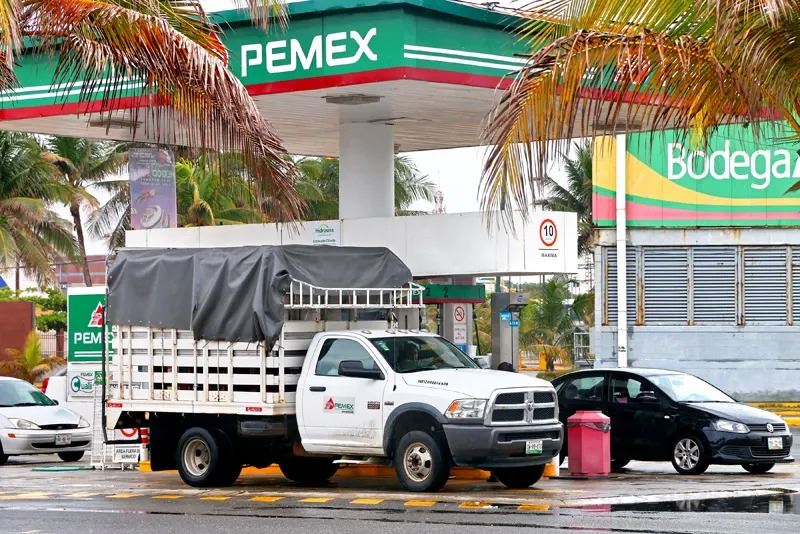COVID-19 has killed hundreds of oil and gas workers in Mexico. By July 22, the death toll at Petroleos Mexicanos (PEMEX) was 227, a world record for COVID deaths reported at a single company.
Coronavirus infection can spread rapidly on offshore platforms. Hospitals are far away, workers sleep in shared quarters, and there is little room to make social distancing possible. In the Gulf of Mexico, at least 15,000 people are working on these platforms.
Mexico’s PEMEX Responds - Too Little, Too Late
Union representatives have accused PEMEX of being slow to prepare for a potential COVID-19 outbreak on its offshore platforms. Once the virus started spreading and workers began dying, the company adopted stricter protocols, including testing workers for the disease, checking their temperature, and sanitizing work areas. Since these measures were implemented, the spread of COVID appears to have slowed down, it was already too late for many PEMEX employees.
The pandemic has made itself felt on offshore platforms ever since the first case was reported on a Norwegian rig in March. Private companies, however, seldom report COVID infection statistics. PEMEX, on the other hand, has been unusually transparent.
As dangerous as offshore drilling may appear these days, the industry is not planning to shut down operations. “We don’t believe a large-scale shutdown is needed at this point,” a spokesperson for Petroleum Equipment and Services Association said. “Our sector is very confident we’re going to defeat this virus sooner than later.”
COVID Infection from the Gulf of Mexico to Brazil
One company that is definitely not halting operations is Brazil’s state-owned oil producer Petrobras. In fact, unions have reported that 45 workers have gotten infected on a single offshore platform near the city of Fortaleza. Workers blame inappropriate safety protocols and inadequate quality masks. According to media reports, after two people tested positive on the platform, the rest had to wait two days to be evacuated.
Though the private sector may be under-reporting COVID infection on offshore platforms, several media accounts have shown just how vulnerable oil and gas workers are right now. In May, for example, Shell airlifted nine individuals from a Gulf of Mexico platform because they had exhibited COVID symptoms.
No Official Offshore-COVID Statistics in The U.S.
In early April, the U.S. Coast Guard halted its reporting of offshore-platform COVID statistics. Until then, 26 cases had been reported. In May, an industry group confirmed there had been 40 confirmed cases on eight offshore platforms. Freedom of Information’s requests for updated official data by journalists have not been answered.
This lack of information is all the more problematic because regulators have not implemented COVID-related safety protocols for offshore platforms, leaving oil and gas companies to deal with infection prevention as they please. Considering the industry’s perpetual inclination to prioritize profits over safety, and the collapse of oil prices during the pandemic, this cannot be good news for workers.
UK Oil and Gas Asks for Blanket Testing
In early August, Oil and Gas UK reported a rise in offshore worker infection on North Sea platforms. The spike, which was linked to an onshore outbreak in Aberdeen, Scotland, came only a couple of weeks after the UK oil and gas industry asked the government to provide the means for blanket COVID testing on offshore platforms.
“Oil platforms are just like cruise liners,” a spokesperson for UK worker unions recently commented. “The confined space, the communal areas, food handling, hygiene. . .”
In the UK, only health workers have direct access to COVID testing if they do not show any symptoms. The industry has been lobbying to demand blanket testing for several weeks now, including at a parliament hearing.
According to Oil and Gas UK’s Trevor Stapleton, “To be able to distinguish between coughs, colds, and COVID is going to be pretty important,” and preventing a single infected worker from going to work offshore will be a “massive win” for the industry.
Thirty-One Offshore Workers Infected in India
As the UK industry lobbied for tests, India became the center of attention when 31 offshore workers tested positive for COVID-19 in Mumbai. The affected individuals, one-third of the total workers on a busy rig, are employees of India’s Oil & Natural Gas Corporation (“ONGC”), a state-controlled producer. In June, there had been another wave of contagion, and one death, on ONGC platforms. At the time, ONGC was forced to stop operations at two offshore rigs.
While we have no way of knowing just how many American offshore workers have tested positive for COVID-19, data from foreign, state-controlled oil and gas companies seem to indicate that the virus may be spreading fast in the Gulf.
If you or a family member have tested positive for COVID-19 after working on an offshore platform, you may have a legal case against the people and companies who were responsible for your safety. Contact us today online or via phone (361) 866-5535 for a no-cost evaluation of your case.


